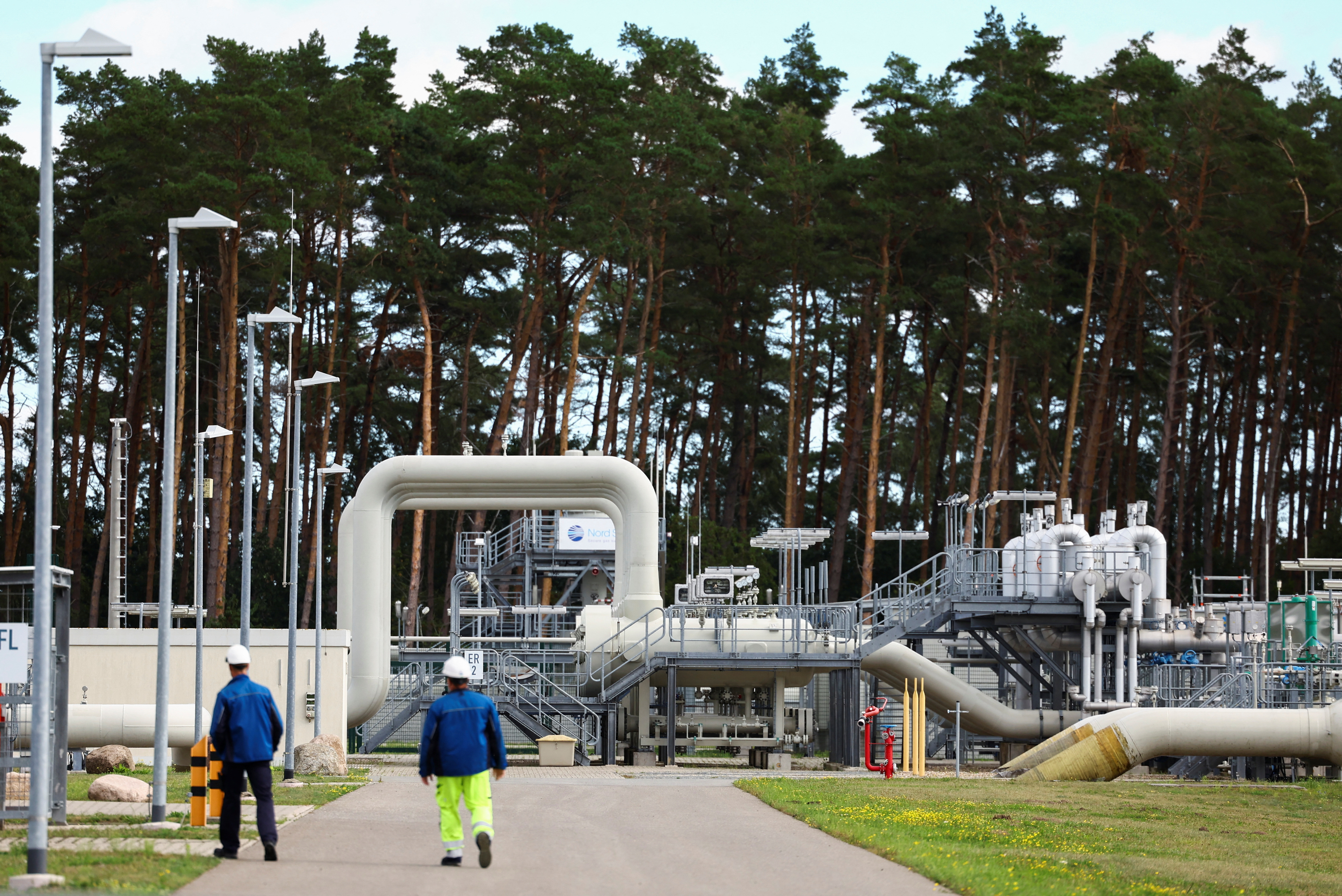Stifling the Canadian Economy
 |
Canada is the world’s fifth-largest oil producer and has the world’s third-largest proven oil reserves |
"We get in our own way. A political quagmire that requires a crisis to make decisions [through] layers of regulation, permits and consultation that take ages to complete.""Canada is one of the most highly taxed economies on Earth which is discouraging.""Interprovincial barriers that cost four percent a year in GDP alone to Canada."Stephen Poloz, former Canadian central bank chief
| German Chancellor Olaf Scholz, left, and Canada's Prime Minister Justin Trudeau talk to the media on the second day of the three-day G-7 summit at Schloss Elmau on June 27, 2022, near Garmisch-Partenkirchen, Germany. | Christinan Bruna, Pool/Getty Images |
Among member countries of the Organization for Economic Co-operation and Development, Canada is gradually losing its ranking on most economic metrics among the developed nations of the world. There is a growing impression among Canada's peer nations that the country has become victim to a grievous sensibility of economic illiteracy, and statistics make it abundantly clear that under its current Liberal government Canada's financial fortunes are rapidly sinking.
An OECD report dated October 2021 predicted that Canada "will be the worst performing advanced economy over 2020 to 2030", and Canada appears to be well on its way to fulfilling that prediction. Forecasted also was that Canada would realize the worst economic growth among other advanced economies over 20340 to 2060. "In other words, Canada will be dead last not only for the next decade, but also for the three decades after that."
Canada's former central banker speaks of the country as a chronic underachiever caused by poor political decision-making added to its failure to address unresolved issues. Falling foreign investment and disinvestment by Canadians to the United States is cited as one of the issues leading to Canada's sinking economic future.
Governmental and consumer higher debts, low GDP income, high government expenditures, lower innovation and competitiveness rankings along with higher unemployment, high inflation rates, dramatically high taxation plus a low trade surplus and lower life expectancy all colour Canada's economic future a wan and sickly shade of failure.
Russia's invasion of Ukraine has ripped through the global economy causing supply chain problems, a rise in the price of grains and fertilizer, and soaring energy prices impacting countries all over the globe as they adjust to the double strike of the pandemic and the war in Ukraine disrupting normalcy and future expectations. In a state of fuel-supply emergency in a Europe saddled with fuel-dependency on Russia, Europe-wide sanctions on Moscow in condemnation of its conflict imposed on Ukraine, the continent is in a state of energy-access emergency.
 |
| People inspect a transparent model of the hydrogen-powered Hyundai Tucson Fuel Cell Canadian International Auto Show in Toronto. (Darren Calabrese/The Canadian Press) |
Canada, with the third-largest fuel reserves on Earth, prefers with Liberal Prime Minister Justin Trudeau, committed to a disastrous environmental agenda hurtling Canada's future into disarray with the decision to keep those energy resources locked in the ground, demurring at the prospect of coming to the aid of its European fellow democracies and NATO members.
In its desperation, Germany in particular along with most other EU nations, is looking for alternative sourcing for its energy needs, contemplating the very real potential of inoperative industries and household inability to keep residents warm in winter, bringing social and economic ruination resulting from Russia's decision to reduce and cut off its contractual obligations to supply Europe with gas and oil.
The Canadian federal government under Trudeau has chosen to smile politely at Germany's chancellor coming cap in hand to try to convince Canada to fill the gap in Europe's collapsing access to fuel, speaking instead of the potential of supplying it with an imagined new resource (hydrogen) whose production does not even exist. In the face of Canada's ability to become a major supplier of liquefied natural gas to Germany, Mr. Trudeau chose to question the "business case", finding it wanting.
 |
| View towards Nord Stream 1 Baltic Sea pipeline and the transfer station of the Baltic Sea Pipeline Link in the industrial area of Lubmin, Germany, August 30, 2022. REUTERS/Lisi Niesner |
Labels: Canadian Natural Fuel Resources, European Fuel Dependency, Russian Invasion of Ukraine
0 Comments:
Post a Comment
<< Home